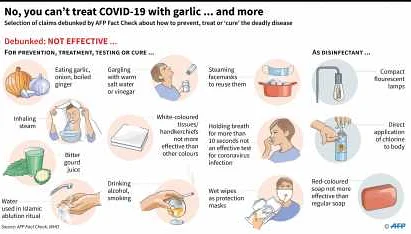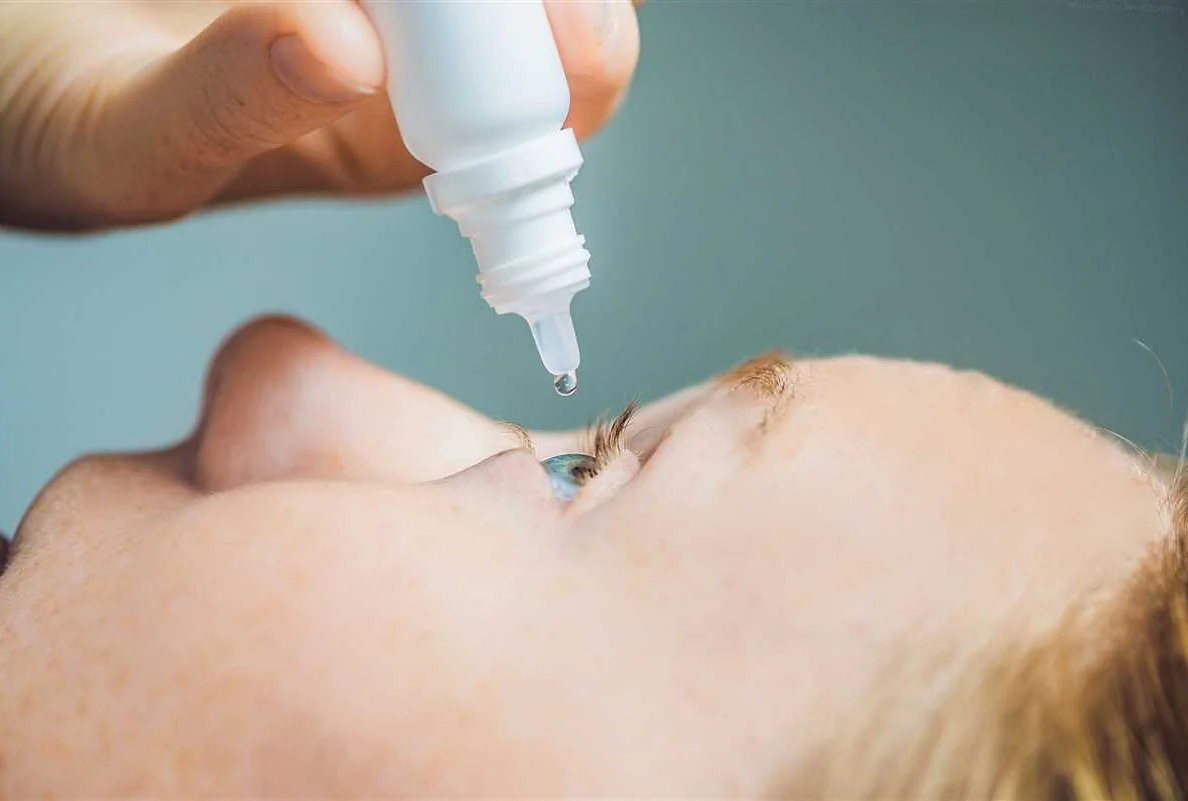The Ministry of Health Proposes a Ban on Advertising of Sore Throat Lozenges and Eye Drops
Содержимое
Find out why the Ministry of Health is planning to ban advertisements for sore throat lozenges and eye drops, and how it could affect consumers and the pharmaceutical industry. Learn about the potential health risks and benefits, as well as alternative remedies for sore throat and eye irritations.
Recently, the Ministry of Health has put forward a proposal to ban the advertising of sore throat lozenges and eye drops. This move comes as part of the government’s broader efforts to regulate the marketing of over-the-counter medications and promote public health. The proposal aims to tackle the misleading claims often made by manufacturers and highlight the potential risks associated with the excessive use of these products.
Why the focus on sore throat lozenges and eye drops?
Sore throat lozenges and eye drops are two commonly used over-the-counter medications that are easily accessible to the general public. While they can provide temporary relief for symptoms, their misuse or prolonged use can have adverse effects on health. The Ministry of Health is particularly concerned about the misleading advertising practices used by manufacturers to promote these products, often exaggerating their effectiveness or downplaying potential side effects.
The need for stricter regulation
The proposal to ban the advertising of sore throat lozenges and eye drops is part of a broader effort by the Ministry of Health to tighten regulations surrounding the marketing of over-the-counter medications. By prohibiting the promotion of these products, the government aims to ensure that consumers have accurate information about their use and potential risks. This move also aims to discourage unnecessary or excessive use of these medications, which can lead to long-term health problems.
In conclusion, the Ministry of Health’s proposal to prohibit advertising of sore throat lozenges and eye drops reflects a commitment to prioritize public health and protect consumers from misleading advertising practices. By tightening regulations and creating greater transparency, the government aims to empower individuals to make informed decisions about their healthcare and promote responsible use of over-the-counter medications.
The Importance of Health Ministry’s Proposal
The proposal by the Ministry of Health to prohibit advertising of sore throat lozenges and eye drops is of great importance for several reasons.
Firstly, advertising plays a significant role in shaping consumer behavior. By limiting the advertisement of these products, the Ministry of Health aims to decrease the unnecessary and excessive use of sore throat lozenges and eye drops. This is important as excessive use of these products can lead to potential health risks, such as antibiotic resistance and possible side effects from overuse.
Secondly, the proposal is crucial in promoting responsible marketing practices. Many advertisements for sore throat lozenges and eye drops make exaggerated claims about their effectiveness, leading consumers to believe that these products are a quick and easy solution to their health problems. By prohibiting the advertising of these products, the Ministry of Health seeks to prevent misleading information and ensure that consumers make informed decisions based on accurate and reliable information.
Thirdly, the proposal focuses on protecting vulnerable populations, such as children and adolescents. These age groups are more susceptible to influence from advertisements and may be easily swayed by appealing marketing tactics. By restricting the advertising of sore throat lozenges and eye drops, the Ministry of Health aims to safeguard the well-being of these vulnerable populations and prevent them from unnecessary or inappropriate use of these products.
Furthermore, the proposal aligns with the Ministry of Health’s overall objective of improving public health. By reducing the advertisement of sore throat lozenges and eye drops, the Ministry of Health aims to encourage individuals to seek professional medical advice instead of relying solely on self-medication. This can lead to proper diagnosis and appropriate treatment, ultimately improving overall health outcomes for the population.
In conclusion, the Ministry of Health’s proposal to prohibit advertising of sore throat lozenges and eye drops is of great importance for promoting responsible marketing practices, protecting vulnerable populations, and improving public health outcomes. By limiting the advertisement of these products, the Ministry of Health aims to ensure that consumers have access to accurate and reliable information, make informed decisions, and seek appropriate medical advice when necessary.
Potential Risks of Advertising Sore Throat Lozenges and Eye Drops

While advertising can be an effective way to inform and educate consumers about various products, there are potential risks associated with promoting sore throat lozenges and eye drops. These risks include:
| Unnecessary Use | Advertising sore throat lozenges and eye drops may encourage individuals to self-diagnose and self-medicate without seeking professional medical advice. This can lead to unnecessary use of these products and potentially delay appropriate medical treatment. |
| Incorrect Usage | Without proper guidance from healthcare professionals, individuals may misuse or incorrectly use sore throat lozenges and eye drops. This can lead to ineffective treatment or potential harm to the user. |
| Masking Underlying Conditions | By relying solely on over-the-counter remedies like sore throat lozenges and eye drops, individuals may mask underlying medical conditions. These products may provide temporary relief of symptoms but not address the root cause of the problem. |
| Delayed Medical Attention | If individuals believe that sore throat lozenges and eye drops are sufficient for treatment, they may delay seeking appropriate medical attention for more serious or persistent symptoms. Delayed diagnosis and treatment can result in complications or worsening of the condition. |
| Potential Side Effects | Sore throat lozenges and eye drops, like any medication, can have potential side effects. Advertising these products without proper disclosure of potential risks may lead to consumers using them without full awareness of the possible adverse effects. |
In conclusion, while advertising can play a vital role in promoting products, it is crucial to consider the potential risks associated with advertising sore throat lozenges and eye drops. It is important to strike a balance between informing consumers and ensuring that they seek appropriate medical advice when needed.
Effectiveness of the Proposed Ban on Advertising

The effectiveness of the proposed ban on advertising sore throat lozenges and eye drops by the Ministry of Health is a matter of debate. While some argue that such a ban would help to protect consumers from misleading claims and promote public health, others believe it may have negative consequences.
Advantages of the Proposed Ban:
The ban on advertising these specific products could potentially benefit consumers by reducing their exposure to misleading information. Many advertisements for sore throat lozenges and eye drops make exaggerated claims about the effectiveness of their products, leading consumers to believe that they are a cure-all for their ailments. By prohibiting such advertisements, the Ministry of Health aims to ensure that people make informed decisions about their health and seek professional medical advice when necessary.
Additionally, banning the advertising of these products may discourage self-medication and encourage individuals to consult healthcare professionals. This can lead to more accurate diagnoses and appropriate treatment plans, ultimately improving overall health outcomes.
Potential Disadvantages:
However, opponents of the proposed ban argue that advertising plays a crucial role in promoting consumer awareness and choice. They contend that by prohibiting advertising, consumers may be less informed about the availability of different sore throat lozenges and eye drops on the market, limiting their options. Furthermore, advertising can often serve as a source of information about new products and advancements in medical treatments.
It is also argued that banning advertisements for these products may stifle competition and innovation. Advertising helps to create brand recognition and incentivizes companies to invest in research and development to improve their products. Without the ability to advertise, companies may be less motivated to invest in the development of new and more effective sore throat lozenges and eye drops.
In conclusion, the effectiveness of the proposed ban on advertising sore throat lozenges and eye drops is a complex issue. While it may protect consumers from misleading claims and encourage them to seek professional medical advice, it may also limit consumer choice and hinder innovation in the industry. A careful consideration of the potential benefits and drawbacks is necessary to evaluate whether the ban would be a beneficial strategy for promoting public health.
Support from Healthcare Professionals
Leading healthcare professionals and organizations have expressed their support for the Ministry of Health’s proposal to prohibit advertising of sore throat lozenges and eye drops. They believe that this measure will help protect public health and promote responsible usage of these products.
The American Medical Association has commended the ministry for taking this initiative, stating that it is crucial to ensure that the advertising of over-the-counter medications is truthful and not misleading. They argue that such advertisements can potentially lead to self-diagnosis and inappropriate use of these products, which can have negative health consequences.
The World Health Organization (WHO) has also voiced its support for the proposal, emphasizing the importance of regulating the advertising of pharmaceutical products. According to the WHO, the unrestricted promotion of medications can contribute to overconsumption and misuse, which can further exacerbate health issues and increase healthcare costs. They believe that limiting the advertising of sore throat lozenges and eye drops will help reduce unnecessary reliance on these products and encourage individuals to seek medical advice when needed.
Additionally, leading ophthalmologists and otolaryngologists have shown their support for the proposal. They argue that the advertisement of eye drops and sore throat lozenges can create false expectations among consumers and underestimate the importance of seeking professional medical advice for eye and throat conditions. They believe that restricting the promotion of these products will encourage individuals to consult healthcare professionals, leading to more accurate diagnoses and appropriate treatment plans.
- The American Medical Association has commended the ministry for taking this initiative.
- The World Health Organization has voiced its support for the proposal.
- Leading ophthalmologists and otolaryngologists have shown their support for the restriction of advertising.
In conclusion, the proposal to prohibit advertising of sore throat lozenges and eye drops has garnered strong support from healthcare professionals and organizations. They believe that this measure will help promote responsible usage of these products and encourage individuals to seek medical advice when needed.